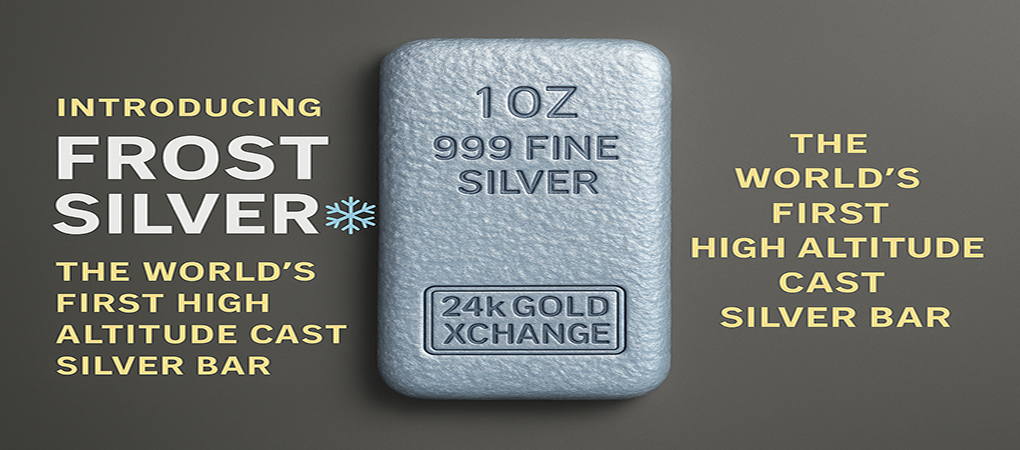
Digital vs. Physical Gold: Which is Right for You?
Gold has long been considered a safe-haven asset, revered for its ability to preserve wealth over time. Whether you're a seasoned investor or a beginner, the question of how to buy gold is an important one. With the rise of digital gold in addition to traditional physical gold, investors now have more choices than ever before. But which option is right for you? Should you opt for the convenience of digital gold, or stick to the tangible security of physical gold?
In this blog, we’ll break down the differences between digital and physical gold, along with the pros and cons of each, to help you make an informed decision that aligns with your investment goals.
What is Digital Gold?
Digital gold is a modern form of investing in gold through online platforms. Essentially, it allows investors to buy, store, and trade gold digitally, without ever physically holding the metal. This type of gold is often backed by real gold stored in secure vaults, with each unit of digital gold representing a specific amount of physical gold.
Digital gold is typically bought and sold via platforms like 24k X Gold, where users can trade gold just as they would stocks or other digital assets. Investors can buy or sell gold in small amounts, transfer gold between accounts, or redeem it for physical gold at any time.
What is Physical Gold?
Physical gold refers to actual gold that you can touch and hold—such as coins, bars, or jewelry. It’s the traditional form of investing in gold and has been used for thousands of years as a store of value. Physical gold is often kept in secure locations, such as safety deposit boxes or high-security vaults, to protect against theft and damage.
Unlike digital gold, physical gold provides you with tangible ownership, meaning that you can hold the gold in your hands and store it as you see fit. It can be sold, gifted, or inherited, providing a sense of control and permanence that digital assets may not offer.
The Pros of Digital Gold
-
Convenience
One of the biggest benefits of digital gold is the convenience it offers. You can buy, sell, or transfer gold with just a few clicks from your computer or smartphone. No need to leave your home, visit a dealer, or worry about the logistics of shipping and storage. -
Liquidity
Digital gold is highly liquid. You can easily convert your gold into cash or transfer it to another person at any time. The market for digital gold is also open 24/7, giving you flexibility in managing your investments. -
Security
Digital gold platforms often offer strong security measures, including encryption, two-factor authentication, and insurance for stored gold. Because you don’t physically handle the gold, you reduce the risks of theft, loss, or damage that can come with holding physical gold. -
No Storage Fees
With digital gold, you don’t need to worry about the costs of storing the physical metal in a vault or safety deposit box. Many platforms, like 24k X Gold, provide secure storage at no additional cost, making it an affordable option for investors who don’t want to deal with storage fees.
The Cons of Digital Gold
-
Dependence on Technology
Digital gold relies on technology and internet access, which can be a disadvantage in case of system failures, hacking attempts, or technical issues. If the platform goes offline or experiences a security breach, your investment could be at risk. -
Less Tangible Ownership
Though digital gold represents real physical gold, you don’t physically hold the metal. For some investors, the psychological satisfaction of owning tangible gold is an important factor when choosing to invest.
The Pros of Physical Gold
-
Tangible Asset
Physical gold gives you a sense of ownership that digital gold simply can’t match. Holding actual gold in your hands can provide reassurance that your investment is safe and real. It’s a true store of value that isn’t tied to any digital infrastructure. -
No Dependency on Technology
Since physical gold isn’t reliant on technology or digital systems, you don’t need to worry about system outages or cybersecurity risks. It’s always accessible and tangible, making it a more secure choice for those who prefer a hands-on approach to investing. -
Privacy
Investing in physical gold is more private than digital gold. There’s no need to create an online account, and your purchases are less likely to be traced. If privacy and discretion are important to you, physical gold offers an advantage over its digital counterpart.
The Cons of Physical Gold
-
Storage and Security
One of the biggest drawbacks of physical gold is the need for safe storage. Whether you're keeping it in a safe deposit box, a home vault, or a personal safe, securing physical gold comes with additional costs and responsibilities. If you don’t store it properly, it could be susceptible to theft or damage. -
Liquidity Challenges
While you can sell physical gold, the process can be more time-consuming than selling digital gold. You may need to find a buyer, deal with appraisal and shipping costs, and wait for the transaction to go through. This makes it less liquid compared to digital gold. -
Premiums and Fees
When buying physical gold, you often pay a premium over the spot price due to minting, packaging, and dealer fees. These premiums can vary depending on the form of gold you purchase (e.g., coins, bars, or jewelry).
Which Is Right for You?
The decision between digital and physical gold ultimately comes down to your investment preferences and goals. If you value convenience, liquidity, and security, digital gold may be the right choice for you. It allows you to invest in gold without the hassles of storage and handling, all while offering flexibility and ease of access.
On the other hand, if you prefer to hold tangible assets, enjoy the privacy of physical ownership, or want to be free from reliance on technology, physical gold may be the better option. It provides a timeless, concrete way to preserve wealth and can be passed down for generations.
For those who want the best of both worlds, you can also consider a combination of digital and physical gold. This allows you to take advantage of the liquidity and convenience of digital gold while also holding physical gold as a more secure and tangible asset.
Conclusion
Whether you choose digital or physical gold, both options offer distinct advantages. Digital gold offers convenience, security, and liquidity, while physical gold provides tangible ownership and privacy. Assess your investment needs and preferences to determine which option fits your financial goals, and consider diversifying your gold holdings to achieve a balanced portfolio.
At 24k X Gold, we provide both digital and physical gold options to give you the flexibility you need to make the best decisions for your investment journey. Start your gold trading experience with us today, and explore the benefits of owning gold in both its digital and physical forms.




